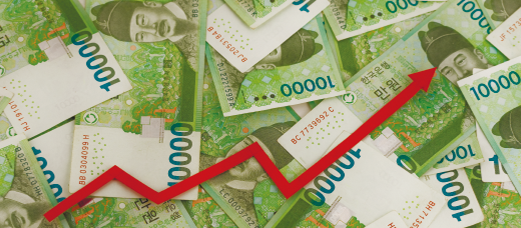

Since my childhood, I have often
heard people say “Honesty is the
best policy”. This now famous
quote is believed to have been
said by Benjamin Franklin. But this
phrase does not just apply to people on a
personal level, but on a national scale as
well.
Recently, some foreign investors doing
business in Korea have expressed their
concerns about Korea’s current political
situation. They may think that the Korean
economy is losing its steam due to political instability taking place throughout the
country. Many others, however, have
expressed strong confidence in the long-term viability of the Korean economy.
That’s because they started their business
in Korea not just for short-term profits,
but for long-term business opportunities.
With the exception of the US and a few
other nations, most countries are having a
hard time dealing with political and economic uncertainties and risks. Korea is
not an exception. Foreign correspondents
understand that Korea’s current political
instability is a cyclical phenomenon.
Every five years, the Korean president
suffers from a “lame duck” period a year
before the next presidential election.
Nevertheless, many people are concerned
about the gravity of this year’s situation.
In particular foreign investors are worried
that Korea may be hit with an economic
crisis.
An economic crisis refers to a situation
in which a country experiences shrinking
GDP and sharp inflation. Such an event is
usually triggered by a crisis in currency.
Under free capital mobility, short-term
speculative capital funds move in and out
of the country whenever profit conditions
change. Their capital size is so huge that
their move immediately affects the foreign currency markets in the host country.
The sudden outflow of huge capital lowers the value of the local currency. If the
supply of foreign currency is depleted, it
will face a foreign currency crisis. If the
debtor country fails to pay the payment of
principal and interests, it will face a foreign debt crisis. But Korea is not going to
experience a foreign currency crisis or a
foreign debt crisis, as it has been a trade
surplus country for years and has consequently accumulated enough foreign currency reserve holdings. Now, the country
holds more than USD 370 billion.
According to a recent report released
by the government authorities, a financial
crisis is not likely to occur because the
financial status of commercial banks is
sound. Thanks to the strict imposition of
LTV (Loan to Value) ratio and DTI (Debt
to Income) ratio, the banks’ balance sheet
looks good. In the eyes of loan officers,
both LTV and DTI are important factors
in determining their mortgage lending but
they put even heavier weight on the borrower’s personal credit score.
For Korea, however, the commercial
banks have been strict in applying the
LTV and DTI ratios. Every time the
housing market was being overheated, the
financial authorities immediately lowered
the LTV ratio to sufficient levels. This
ratio used to be kept at a low within the
40-60 percent range for many years. In
terms of the soundness of the balance
sheet, the commercial banks are quite
alright. So the chance of a financial crisis
occurring are slim.
Nevertheless, Korea is undergoing a
political turbulence in the absence of
presidential leadership. Political and
opinion leaders thus should make utmost
efforts to shorten the lengthy and overheated controversy. Officials should be
more honest with each other and prioritize stabilizing the economy over anything else. They should also encourage
business people to make long-term
investments. The entire world is watching
Korea with extreme interest. Let us show
them we are weathering the current political situation well and thus, the economy
will prosper even more in the future.